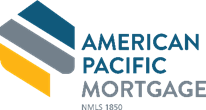
Home Financing FAQs
Whether you’re buying your first home or your tenth, it’s likely that you have at least some questions about home financing. At Jason Vassar Home Loans, we love helping local clients get informed about their mortgage options, so they can achieve their dreams and save big long-term. Read on to learn more about some home financing FAQs we commonly hear that may also be of interest to you. We offer free quotes and prequalification, so contact us in Roseville, California, when you’re ready to take the next step.
What’s the difference between a conventional and nonconventional loan?
Nonconventional loans are insured by various divisions of the federal government such as the Federal Housing Administration. Conventional loans, instead, are fully funded and insured by private lenders. Conventional loans have more stringent approval requirements than nonconventional loans, but they typically have slightly lower interest rates than nonconventional loans.
How much do I need to save for a down payment?
That depends on the loan. Some nonconventional loans have no down payment requirement at all, including those backed by the U.S. Department of Veterans Affairs (the VA) and the U.S. Department of Agriculture (the USDA). Conventional loans usually require at least a 20% down payment, and some portfolio loans like hard money loans may require even more. Each case is unique, but as a general rule, the larger down payment you provide, the lower your interest rate.
What is mortgage insurance?
Mortgage insurance is required for most conventional loans until a borrower achieves at least 20% equity on his or her home. It’s important to note that mortgage insurance doesn’t offer you any sort of protection as a borrower, so it’s important not to confuse it with homeowner’s insurance. Mortgage insurance, instead, gives your lender an extra level of security in case that you default on your mortgage payments.
What is a jumbo loan?
Jumbo loans are a nonconforming type of conventional loan. They’re conventional because they’re not backed by the federal government, and they’re nonconforming because they do not conform to guidelines set by mortgage giants Fannie Mae and Freddie Mac. These companies purchase conforming mortgages in bulk and repackage them for sale on the public market, but they will not purchase mortgages that exceed certain limits that vary by county. Any mortgages that exceed this limit are jumbo loans, which typically have a higher down payment requirement and higher interest rates than conforming loans.
Isn’t it cheaper to rent?
Not necessarily. If you’re able to secure a good interest rate, your monthly mortgage payment may be less than your rent payment. It’s important to note, however, that you’ll also pay for some additional costs as a homeowner, including homeowner’s insurance and private mortgage insurance, and for the cost to repair anything that breaks or any improvements you’d like to make to your home. When you rent a place, your landlord is typically responsible for covering the costs of most repairs and upkeep. When you get a mortgage payment, you begin to build equity in your home, which you then will get back once you sell your home. When you rent a place, however, you get nothing back when you move.
How can I get started?
The home financing professionals at Jason Vassar Home Loans would love to answer any questions you have remaining after reading our home financing FAQs. Contact us in Roseville, California, to schedule a consultation and get a free quote.







